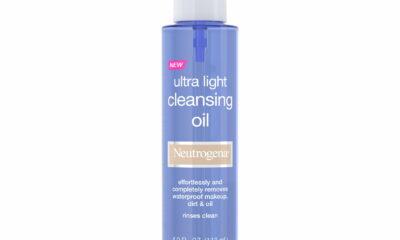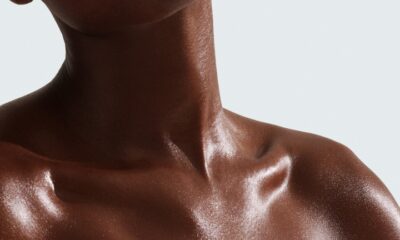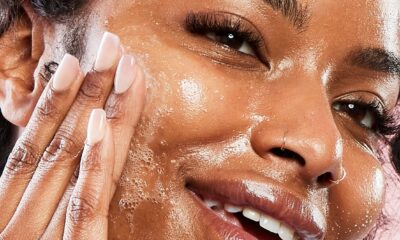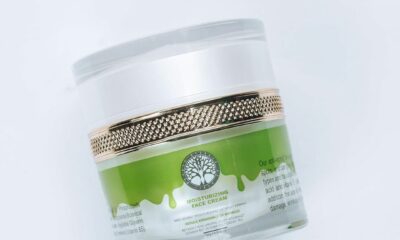Skin Care
4 Natural Remedies for Hyperpigmentation

Skincare – the ultimate luxury for our skin, but also a significant blow to our wallets. As the saying goes, “Beautiful skin requires commitment, not a miracle.” But let’s be real, we have been there—investing thousands of naira on expensive products and treatments, only to be left with little or no results. When it comes to skincare, the saying “Less is more” applies to it. Most times you don’t need all those heavy high-end products to get results; a simple routine will do wonders. The too many ingredients in some products can limit your desired results if wrongly used.
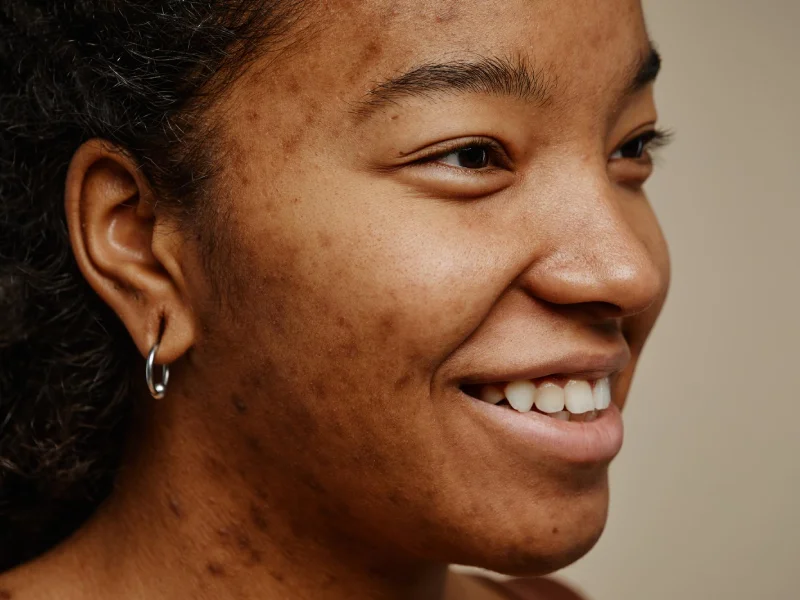
Light-skinned lady with hyperpigmentation
Dr. Dennis Gross, a renowned dermatologist, once said “Good skincare doesn’t have to be expensive, but it does have to be consistent.” What if we show you how to achieve flawless, even-toned skin without breaking the bank? Yes!
So before you spend another fortune on expensive treatments, try these 4 natural remedies to help fade those dark spots and even out your skin tone.
1. Turmeric: The Golden Goddess of Skin
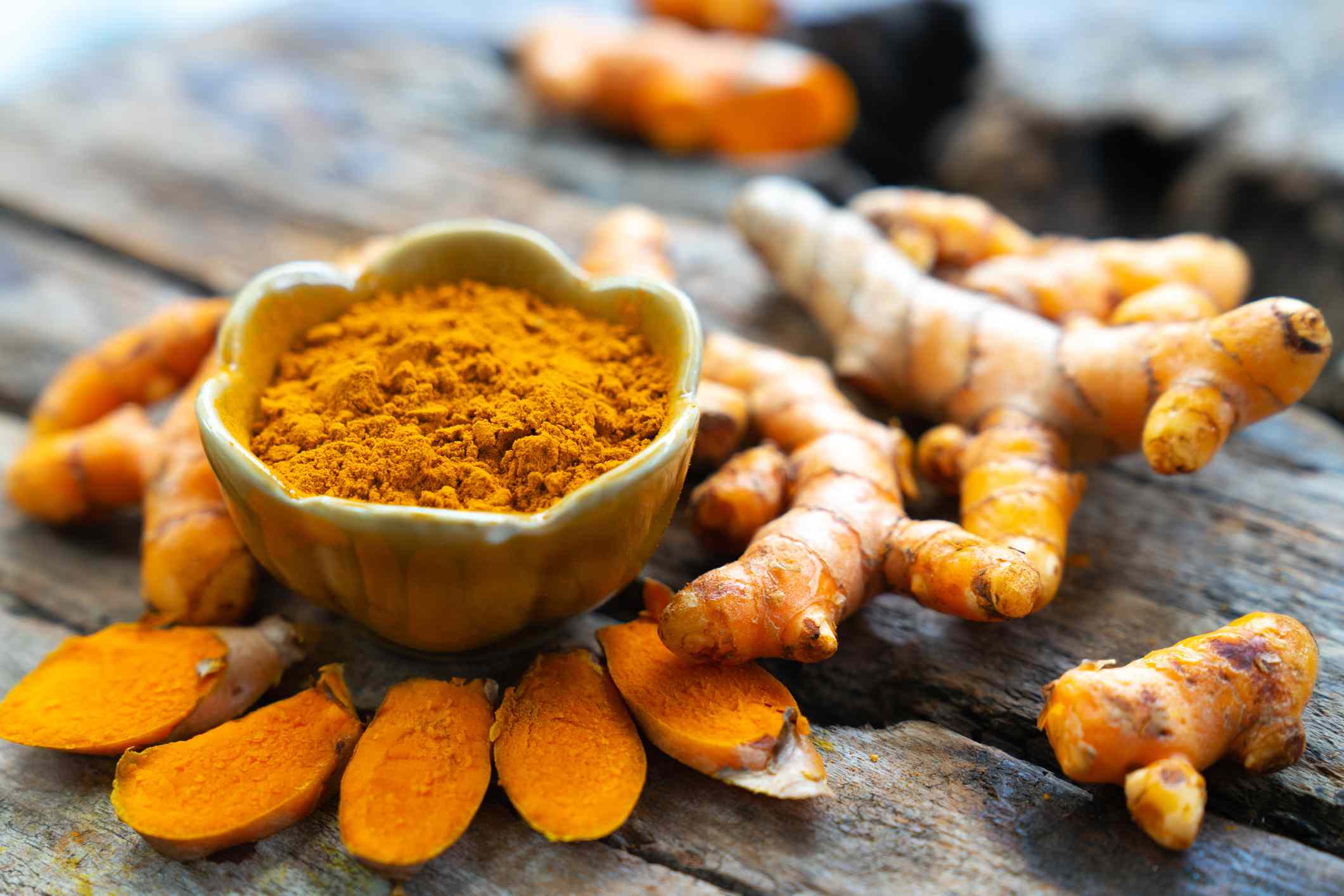
Tumeric
Turmeric, the spice that gives jollof rice its signature flavor, is also a powerhouse when it comes to hyperpigmentation. Its active ingredient, curcumin, contain potent antioxidant and anti-inflammatory properties that help reduce melanin production and fade dark spots.
To use turmeric for hyperpigmentation:
– Mix 1 teaspoon of turmeric powder with 1 tablespoon of honey and 1 tablespoon of yogurt to form a paste.
– Apply the paste to the affected area and leave it on for 20-30 minutes.
– Rinse with warm water and pat dry.
2. Cucumber: The Cooling Agent
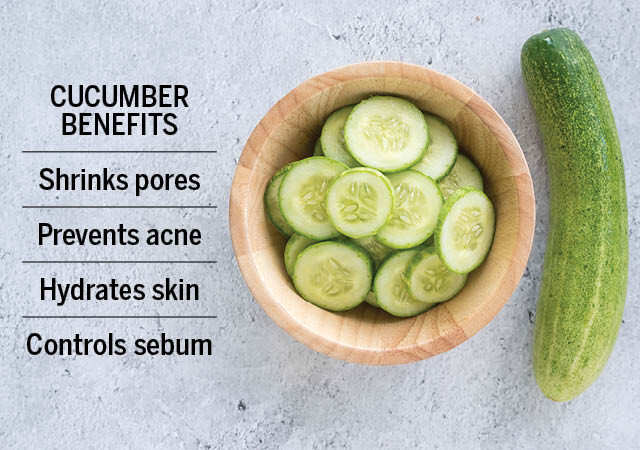
Cucumber -The cooling natural agent
Cucumbers are more than just a refreshing snack; they’re also a natural remedy for hyperpigmentation. The antioxidants and vitamins in cucumbers help reduce inflammation and fade dark spots.
To use cucumber for hyperpigmentation:
– Slice a cucumber and place it on the affected area.
– Leave it on for 20-30 minutes and then rinse with warm water.
– You can also juice a cucumber and apply it to the affected area using a cotton pad.
– For more benefit, mix cucumber juice with aloe vera gel and apply it overnight to help soothe and calm your skin.
3. Lemon Juice: The Natural Astringent
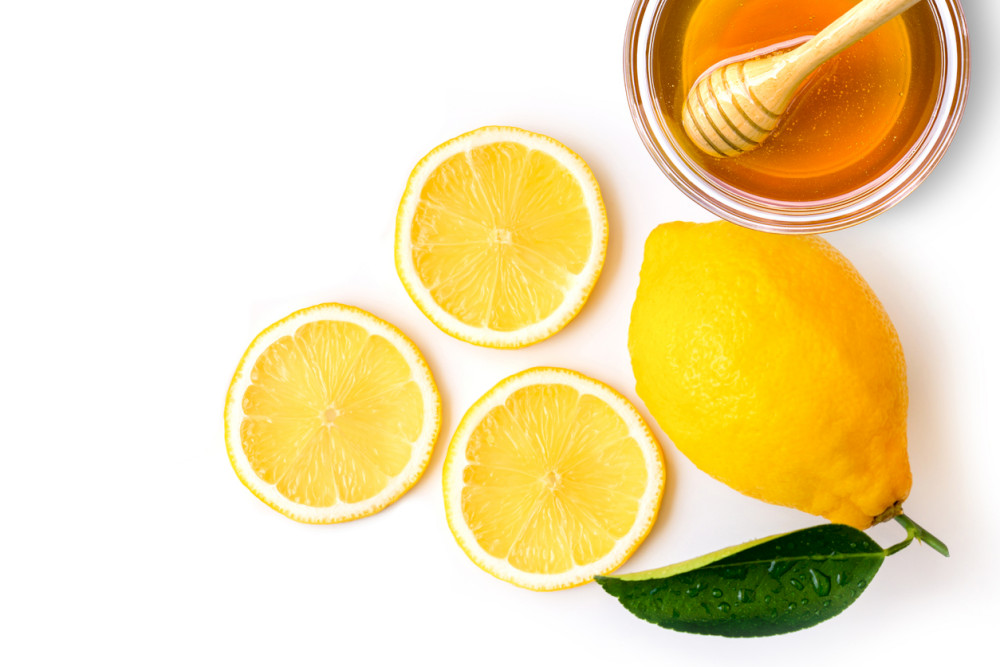
Whole and slice of fresh yellow lemon lime fruit with honey in wooden bowl.
Lemon juice is a natural astringent that helps reduce the appearance of dark spots and hyperpigmentation. The acidity in lemons also helps break down melanin and promote even skin tone.
To use lemon juice for hyperpigmentation:
– Mix equal parts lemon juice and water and apply it to the affected area using a cotton pad.
– Leave it on for 10-15 minutes and then rinse with warm water.
– Be careful not to overuse lemon juice, as it can dry out your skin.
– For an added benefit, mix lemon juice with honey to create a soothing face mask that helps fade dark spots.
4. Aloe Vera: The Skin Soother
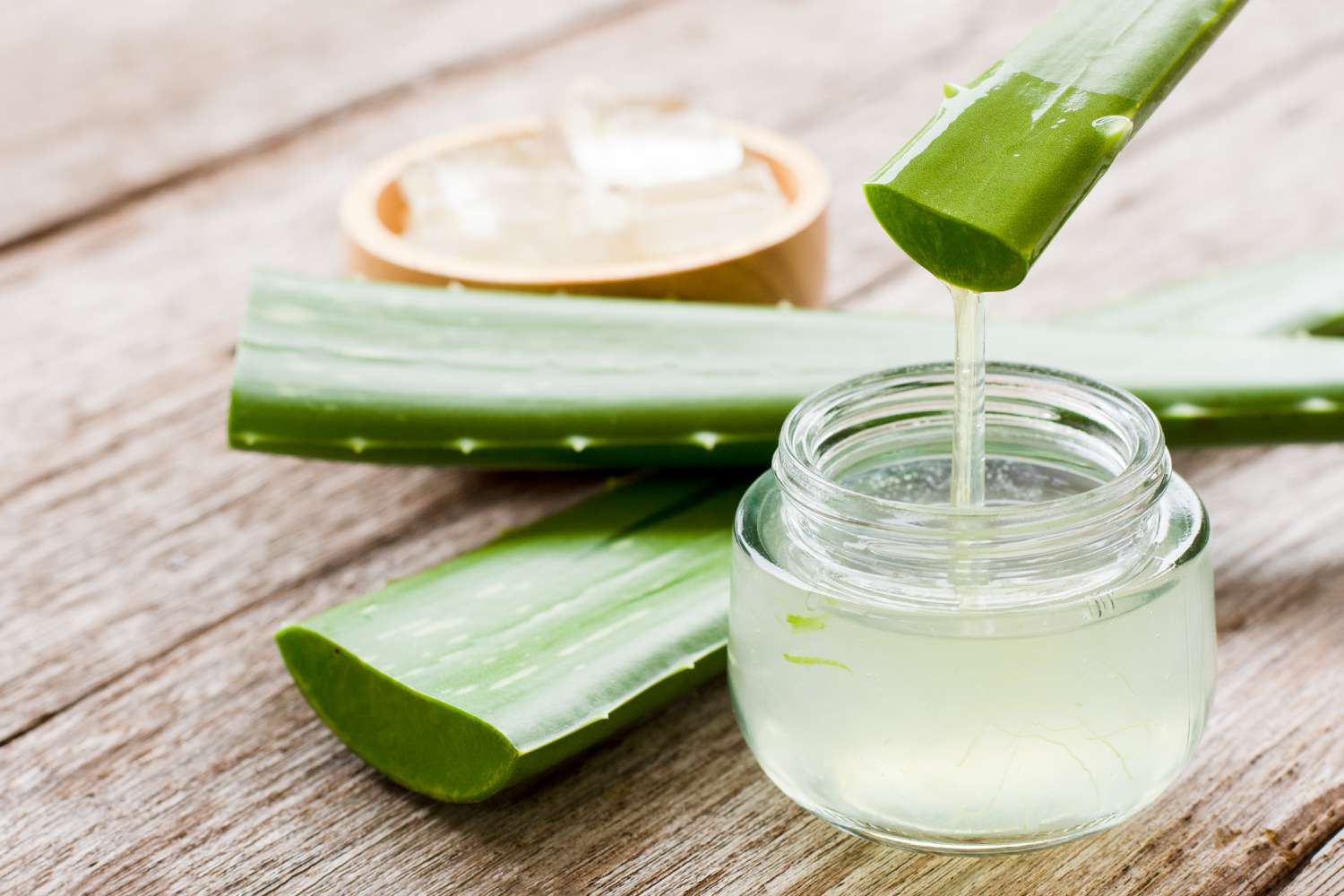
Aloe vera gel from fresh Aloe vera plant
Aloe vera is a natural skin soother that helps reduce inflammation and promote even skin tone. The antioxidants and vitamins in aloe vera help fade dark spots and hyperpigmentation.
To use aloe vera for hyperpigmentation:
– Apply aloe vera gel directly to the affected area.
– Leave it on overnight and rinse with warm water in the morning.
– You can also mix aloe vera gel with other natural remedies, like turmeric or lemon juice, for added benefits.
Read also: Morning and Night Routines for Oily Skin
Hyperpigmentation can be frustrating, but with these 4 natural remedies, you can help fade dark spots and achieve a more even skin tone. Always do a patch test before trying new remedies and be patient, as treatment may take time to show results.
So, which of these natural remedies will you try first?
Skin Care
4 Best Cleansing Oils We Tested to Gently Remove Makeup, Dermatologist-Approved
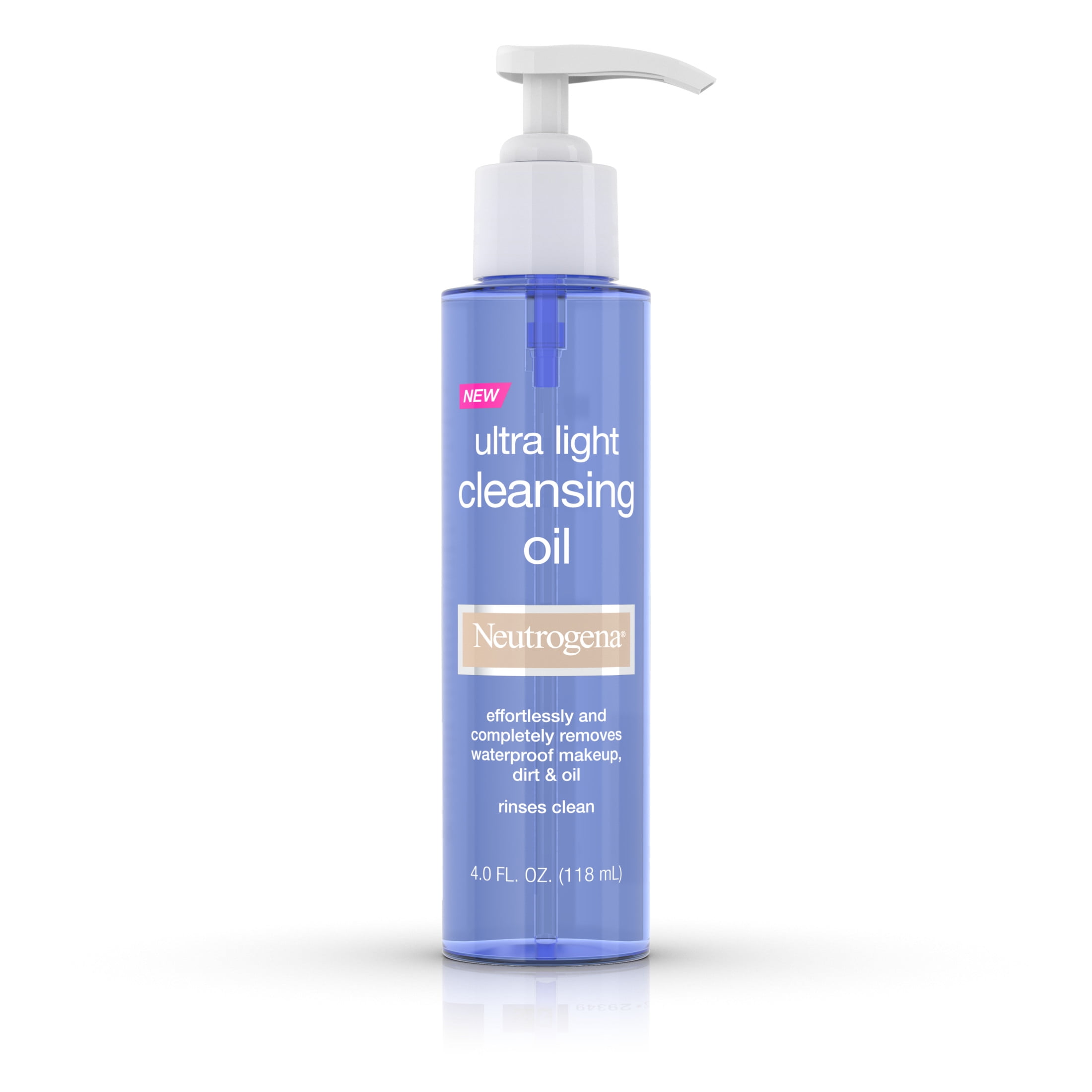
Cleansing oils have become essentials for anyone who wears long-wear makeup or relies on sunscreen daily. They break down pigment without stripping the skin, and the right formula keeps the complexion smooth, clear, and comfortable. We tested multiple options across different textures and skin types to find the oils that truly perform.
Kose Softymo Speedy Cleansing Oil

A lightweight favorite that cuts through foundation and brow products almost immediately. It emulsifies cleanly, making it ideal for oily and combination skin that needs a thorough cleanse without residue.
Hada Labo Gokujyun Cleansing Oil

Soft, hydrating, and perfect for dry or dehydrated skin. The formula gives a smooth glide and rinses off without leaving a coated feel, making it a strong choice for evening routines.
Simple Hydrating Cleansing Oil

A minimal, fragrance-free option made for sensitive skin. It removes makeup gently and keeps the moisture barrier intact, which is important for anyone prone to irritation or dark marks from harsh cleansers.
Neutrogena Ultra-Light Cleansing Oil

Featherlight and quick to dissolve sunscreen, dust, and daily buildup. It’s a reliable everyday cleanser for those who prefer a barely-there texture that still works efficiently.
A few seconds of massaging, a splash of water, and each of these oils transforms into a clean, milky rinse, dependable formulas that make end-of-day cleansing feel smooth instead of stressful.
Skin Care
Best Sunscreens for Every Skin Type

Sunscreen rarely makes it onto the average Nigerian skincare list. We think cleanser, maybe moisturizer, but SPF hardly ever makes the cut. Many still assume darker skin doesn’t need sun protection. Unfortunately, that’s a myth. The sun spares no one, and UV rays can dull your glow, darken spots, and speed up ageing.
We live under a sun that can roast corn by noon, so skipping sunscreen is not a show of strength; it is self-sabotage. Thankfully, formulas have improved. There’s now an SPF for every skin type, and most blend beautifully on deeper tones without leaving that ghostly finish. Here’s how to find one that truly works for you.
For Oily Skin: Keep It Light and Matte

Oily skin and Lagos humidity are a risky combination. The trick is to pick a sunscreen that keeps you protected without adding extra shine. Lightweight, gel-based formulas are best. They dry fast, feel weightless, and help control oil throughout the day.
Look for products labelled oil free, mattifying, or niacinamide infused. They’ll give your skin a clean, smooth finish without clogging pores.
Tip: Keep blotting paper in your bag. The heat will always test you, so stay ready.
For Dry Skin: Think Moisture First

If your skin feels tight or flaky, creamy sunscreens are your best bet. Choose formulas with hydrating ingredients such as shea butter, glycerin, or hyaluronic acid. They protect your skin while locking in moisture, leaving it soft and comfortable instead of parched.
For best results, apply your moisturizer first, wait a few minutes, and then follow with sunscreen. It goes on evenly and lasts longer.
For Combination Skin: Aim for Balance

Combination skin means oily in some areas and dry in others, so balance is everything. A gel cream sunscreen works well; it is light enough for the T-zone, yet hydrating enough for the cheeks.
Go for non-comedogenic products that won’t clog pores or cause breakouts. The right texture should leave your skin feeling fresh, not sticky.
For Sensitive Skin: Gentle Does It

If your skin reacts easily, stick with mineral sunscreens containing zinc oxide or titanium dioxide. They sit on top of the skin instead of sinking in, which reduces the risk of irritation.
Fragrance-free formulas are safest. And if you notice ingredients like aloe vera or green tea on the label, even better; they help soothe and calm the skin after sun exposure.
For Dark Skin: No White Cast Allowed

Many people with darker skin tones have given up on sunscreen because of that chalky residue. But newer formulas now melt seamlessly into melanin-rich skin without dulling your complexion.
Look out for labels that say invisible finish, clear, or tinted. Gel or serum based sunscreens tend to blend best, leaving your skin with a healthy, natural sheen rather than an ashy film.
For Outdoor Lifestyles: Sweat Proof or Nothing

If you spend a lot of time outdoors, whether it is morning workouts, daily commutes, or weekend parties, choose a sunscreen that stays put. Water resistant or sport formulas are built to handle sweat and heat.
Remember to reapply every two hours if you’re under the sun for long periods. It may seem like extra effort, but your skin will thank you later.
Final Word: SPF is Essential
Sunscreen is not an optional step; it is the backbone of good skincare. You can invest in the best serums and scrubs, but without SPF, you’re undoing all that effort.
So, before you head out, whether for errands, work, or brunch, make sunscreen the last step in your routine. It’s not about vanity; it’s about care. Years from now, your skin will show the difference.
Skin Care
Start Your Routine Off Strong With the Best Body Oils
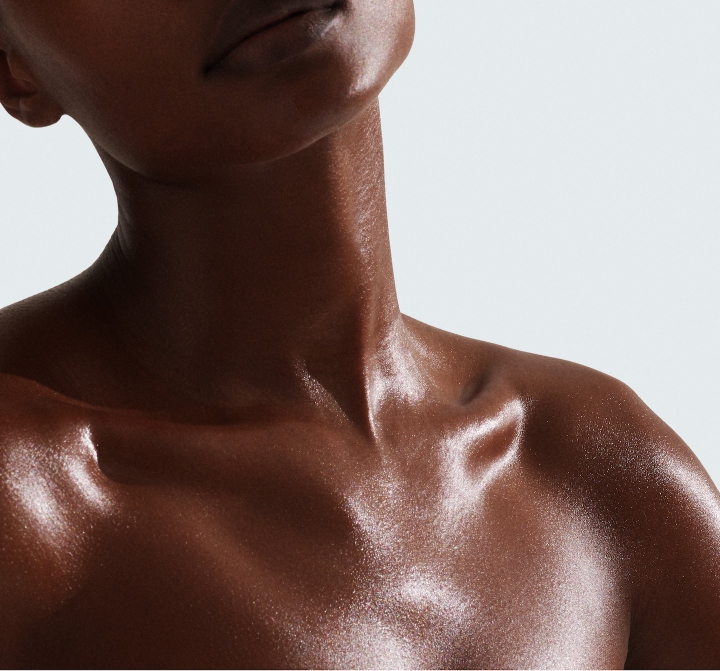
Body oils are lightweight, fast-absorbing oils that can be used to nourish and moisturize your skin. They’re perfect for hydrating dry skin, reducing inflammation, and even helping to improve the appearance of fine lines and wrinkles. If you struggle with a dry and dull skin, body oil should be a must-have in your routine.

Image: Google
Benefits of Using Body Oils
Body oils offer several notable advantages for skin health. Below are a few of them:
Hydration: they play a significant role in maintaining skin hydration by forming a barrier that helps retain moisture, resulting in softer, more supple skin.
Nourishments: many body oils are rich in antioxidants, vitamins, and essential fatty acids, which contribute to the nourishment and protection of the skin
Improved skin texture: Consistent application of body oils can also improve skin texture, potentially reducing the appearance of fine lines and wrinkles and promoting a smoother, more radiant complexion.
How to Choose the Best Body Oil for Your Skin Type:

Image: Argan oil from Saya
Selecting an appropriate body oil depends largely on one’s skin type. Here are a few tips to help:
Dry skin: Look for oils with deeply moisturizing properties, such as coconut oil, shea butter, or argan oil.
Oily skin: For those with oily skin, lighter oils like jojoba or sweet almond oil are preferable, as they provide hydration without blocking pores.
Sensitive skin: choose fragrance-free and hypoallergenic options to minimize the risk of irritation.
Top Body Oil Choice for Your Body
Here are some of the best body oils for achieving a glowing complexion:
Argan oil: rich in antioxidant and essential fatty acid content. It helps to nourish and protect the skin.

Image: Coconut body oil by Palmers
Coconut oil: recognized for its moisturizing and healing properties.
Jojoba oil: valued for its lightweight texture and rapid absorption.
Sweet almond oil: It is rich in vitamins and minerals that can help to nourish and soften your skin.
How to Use Body Oils

Image: Sweet almond body oil

Image: Jojoba body oil from Google
Applying body oils is a straightforward process, but there are some best practices that can maximize their benefits. First, it’s advisable to apply body oil immediately after showering while the skin remains damp. This timing helps to retain moisture more effectively.
When applying, gently massage the oil into your skin using circular motions. This method not only encourages absorption but can also support circulation and ease muscle tension—a small but beneficial addition to the routine.
For a more intensive treatment, consider applying a generous amount of oil and allowing it to sit on the skin for approximately thirty minutes before rinsing off. This approach can deliver deeper nourishment.
Body oils are a valuable addition to skincare routines. Their ability to hydrate, nourish, and improve skin texture is a game-change. Selecting an oil that suits your skin type and using it consistently will promote a healthier, and more radiant complexion.
-

 Celebrity News5 months ago
Celebrity News5 months agoToke Makinwa Shares Graceful Pregnancy Reveal
-

 Sex & Relashionships5 months ago
Sex & Relashionships5 months agoSigns You Have Abandonment Issue and How to Heal
-

 Models5 months ago
Models5 months agoDorothy Anador Celebrates Her Best Self in Birthday Photoshoot
-

 Music5 months ago
Music5 months agoKokopee Drops EP ‘All I Need It’s Kokopee
-

 Celebrity News5 months ago
Celebrity News5 months agoAsake Shows off New Hair on Stage
-

 Movies4 months ago
Movies4 months agoMovie Review: Task Official Trailer
-

 Top Xclusiv4 months ago
Top Xclusiv4 months agoItalian Designer Giorgio Armani Dies at 91
-

 Music4 months ago
Music4 months agoAyra Starr – Hot Body Video Review
-

 Celebrity Style4 months ago
Celebrity Style4 months agoEniola Badmus Creates a Deck-of-Cards Visual in Photoshoot
-

 Fashion5 months ago
Fashion5 months agoFive Mini Outfits From Esther Morgan That Are Screenshot Worthy

